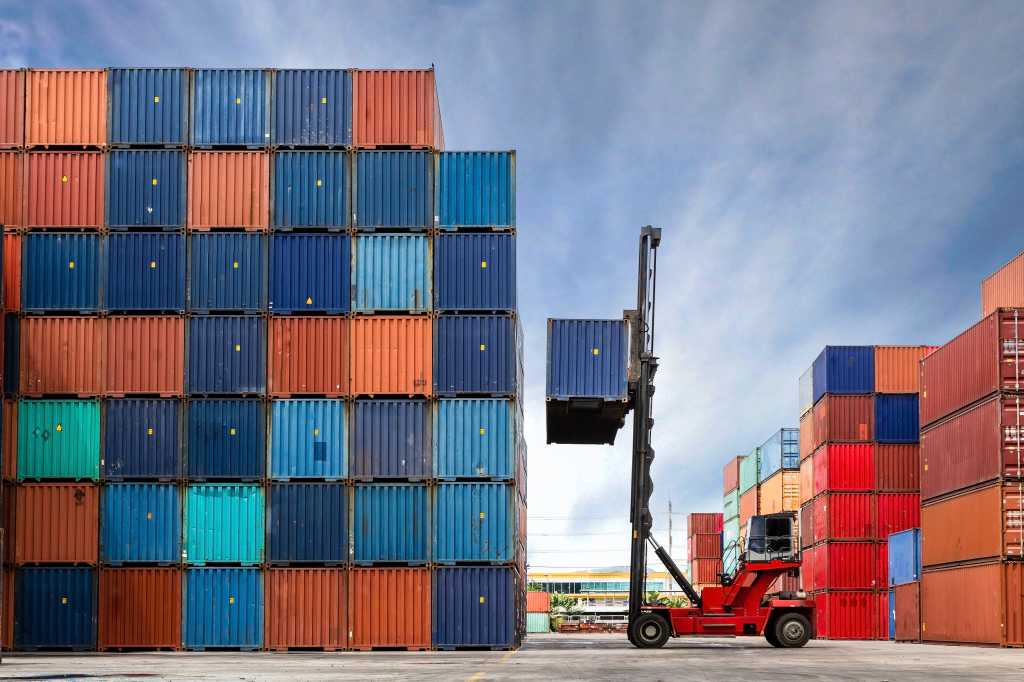
In a Skandinaviska Enskilda Banken AB (SEB) report sent to Rigzone by the SEB team on Thursday, SEB Commodities Analyst Ole R. Hvalbye outlined that “fresh U.S. sanctions reignited strong upside momentum” in the oil market.
“The U.S. has now announced sanctions targeting Russia’s two largest oil producers, Rosneft PJSC and Lukoil PJSC, effectively blacklisting both companies,” Hvalbye said in the report.
“Washington cited Moscow’s lack of progress toward peace in Ukraine, marking a significant escalation in pressure on President Vladimir Putin to enter negotiations,” he added.
Hvalbye stated in the report that a full blacklisting would, at least in theory, make it very difficult for Rosneft and Lukoil barrels to reach the market.
“Rosneft produced nearly 3.7 million barrels per day during the first half of 2025, while Lukoil’s Russian assets contributed roughly 1.6 million barrels per day of oil and condensate output (2024 data),” he noted.
“Together, the two companies account for almost half of Russia’s total crude exports, underscoring the scale and impact of Washington’s move. Rosneft, led by Igor Sechin, and privately held Lukoil are by far Russia’s largest oil producers and central to the country’s energy income,” he added.
“It is worth noting that oil and gas revenues make up around 24 percent of Russia’s federal budget, highlighting the strategic importance of these sanctions,” Hvalbye continued.
The SEB analyst went on to state that, while the sanctions’ effectiveness remains uncertain, the move represents a clear shift in tone from the Trump administration and opens the door for even tougher measures ahead.
“Trump has also stated his intention to raise the issue of Chinese purchases of Russian oil when he meets President Xi Jinping in South Korea next week,” Hvalbye highlighted.
“Earlier this week, India’s Prime Minister Narendra Modi reportedly signaled that India would begin to scale back its imports of Russian crude, further tightening the strap around Moscow’s export options,” he added.
“Since the invasion of Ukraine, China and India have become Russia’s largest oil customers as most Western nations have shunned direct purchases. So far, Trump has imposed steep tariffs on Indian goods but stopped short of taking direct action against Chinese buyers, something that could change if geopolitical tensions escalate further,” Hvalbye warned.
In a market update sent to Rigzone by the Rystad Energy team on Thursday, Rystad’s Head of Geopolitical Analysis, Jorge Leon, said “the latest U.S. sanctions on Russia’s largest oil producers represent a significant and unprecedented escalation in Washington’s pressure campaign against Moscow”.
“The sharp rise in oil prices following the announcement underscores market fears that Russian crude exports – particularly to India, one of its key customers – could fall sharply,” he added.
“Combined with the recent wave of attacks on Russian oil infrastructure, these sanctions raise the prospect of major disruptions to Russian crude production and exports, heightening the risk of forced production shut-ins,” Leon continued.
The Rystad Head went on to warn in the update that “this increasingly complex geopolitical backdrop could threaten the coherence of the OPEC+ strategy to gradually increase supply”.
“If Russian production is curtailed, Moscow would find it economically and politically unviable to support further output increases within the alliance,” he said.
“Such a scenario could reignite internal tensions within OPEC+, as member countries weigh the need for market stability against their own fiscal imperatives in an environment of heightened uncertainty,” he added.
“The big question now is whether Washington’s latest sanctions will be enough to draw Moscow back to the negotiating table – and, if they fail to do so, what options remain to increase pressure without crossing the line into open confrontation,” Leon noted.
A release posted on the U.S. Department of the Treasury website on Wednesday stated that the U.S. Department of the Treasury’s Office of Foreign Assets Control (OFAC) “is imposing further sanctions as a result of Russia’s lack of serious commitment to a peace process to end the war in Ukraine”.
“Today’s actions increase pressure on Russia’s energy sector and degrade the Kremlin’s ability to raise revenue for its war machine and support its weakened economy,” the statement added.
“The United States will continue to advocate for a peaceful resolution to the war, and a permanent peace depends entirely on Russia’s willingness to negotiate in good faith. Treasury will continue to use its authorities in support of a peace process,” it continued.
The statement noted that the action targets Russia’s two largest oil companies, Open Joint Stock Company Rosneft Oil Company (Rosneft) and Lukoil OAO (Lukoil), which it said are now designated.
“Rosneft and Lukoil are being designated pursuant to E.O. 14024 for operating or having operated in the energy sector of the Russian Federation economy,” the statement announced.
“Additionally, OFAC is designating a number of Russia-based Rosneft and Lukoil subsidiaries … All entities owned 50 percent or more, directly or indirectly, by Rosneft and Lukoil are blocked pursuant to E.O. 14024, even if not designated by OFAC,” it added.
In that statement, Secretary of the Treasury Scott Bessent said, “now is the time to stop the killing and for an immediate ceasefire”.
“Given President Putin’s refusal to end this senseless war, Treasury is sanctioning Russia’s two largest oil companies that fund the Kremlin’s war machine,” he added.
“Treasury is prepared to take further action if necessary to support President Trump’s effort to end yet another war. We encourage our allies to join us in and adhere to these sanctions,” he continued.
Rigzone has contacted Rosneft, Lukoil, and the Department of Information and Press of the Russian Ministry of Foreign Affairs for comment on the Treasury release, the SEB report, and the Rystad update. Rigzone has also contacted the White House and the Official Spokesperson and Additional Secretary of India’s Ministry of External Affairs for comment on the SEB report and Rystad update. In addition, Rigzone has approached the International Press Center of China’s Ministry of Foreign Affairs for comment on the SEB report and OPEC for comment on the Rystad update. At the time of writing, none of the above have responded to Rigzone.
In a market analysis sent to Rigzone on Wednesday, Konstantinos Chrysikos, Head of Customer Relationship Management at Kudotrade, highlighted that “oil prices staged a rebound” yesterday, “recovering from their recent five-month lows”.
In a SEB report sent to Rigzone by the SEB team yesterday, Hvalbye noted that, “so far this week, Brent crude has climbed by roughly $2.5 per barrel from Monday’s low of $60.07, the weakest print since early May”.
A separate report sent to Rigzone by the Standard Chartered team on Wednesday, which was dated October 21, warned that crude oil sentiment “is currently overwhelmingly negative”.
To contact the author, email [email protected]






















